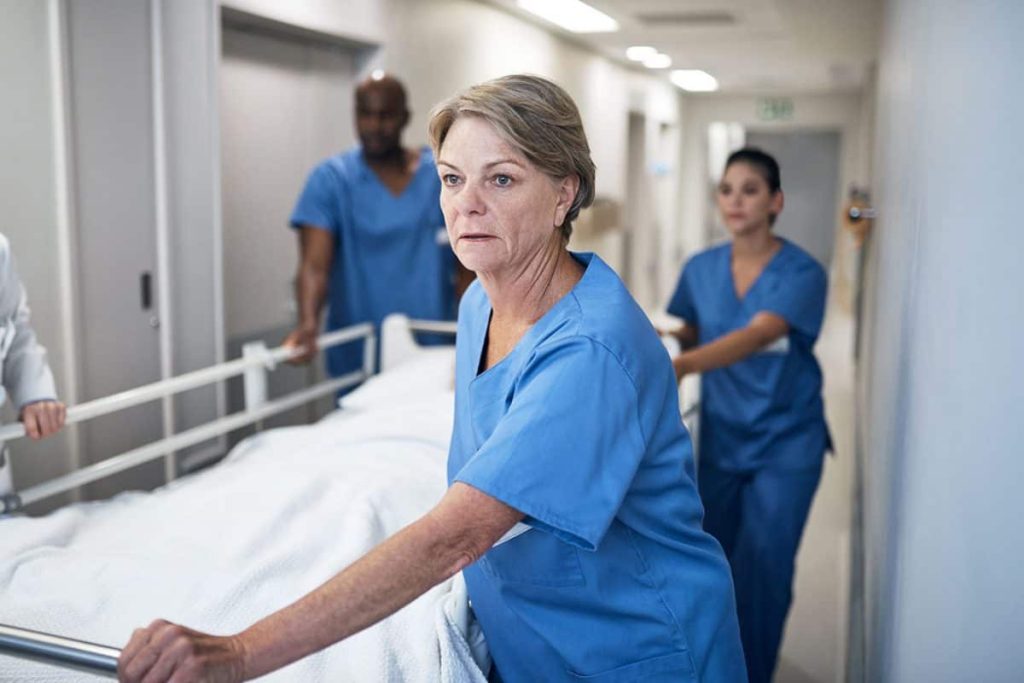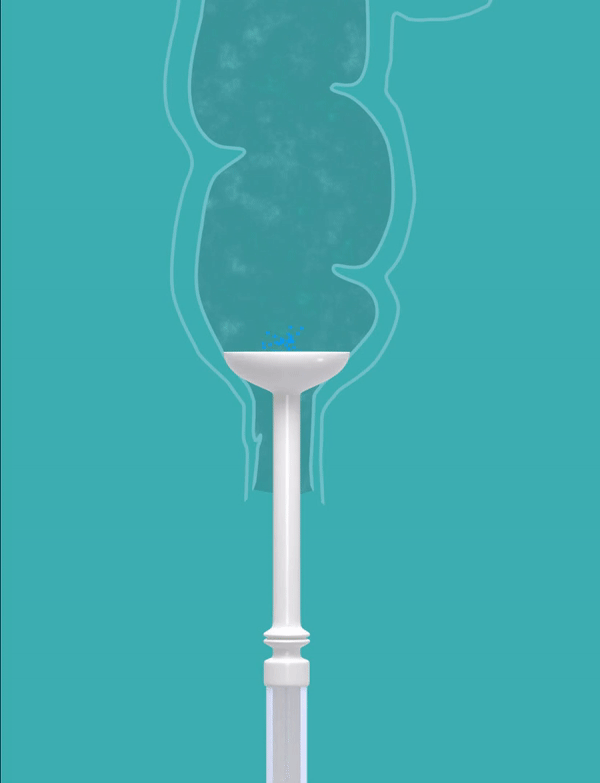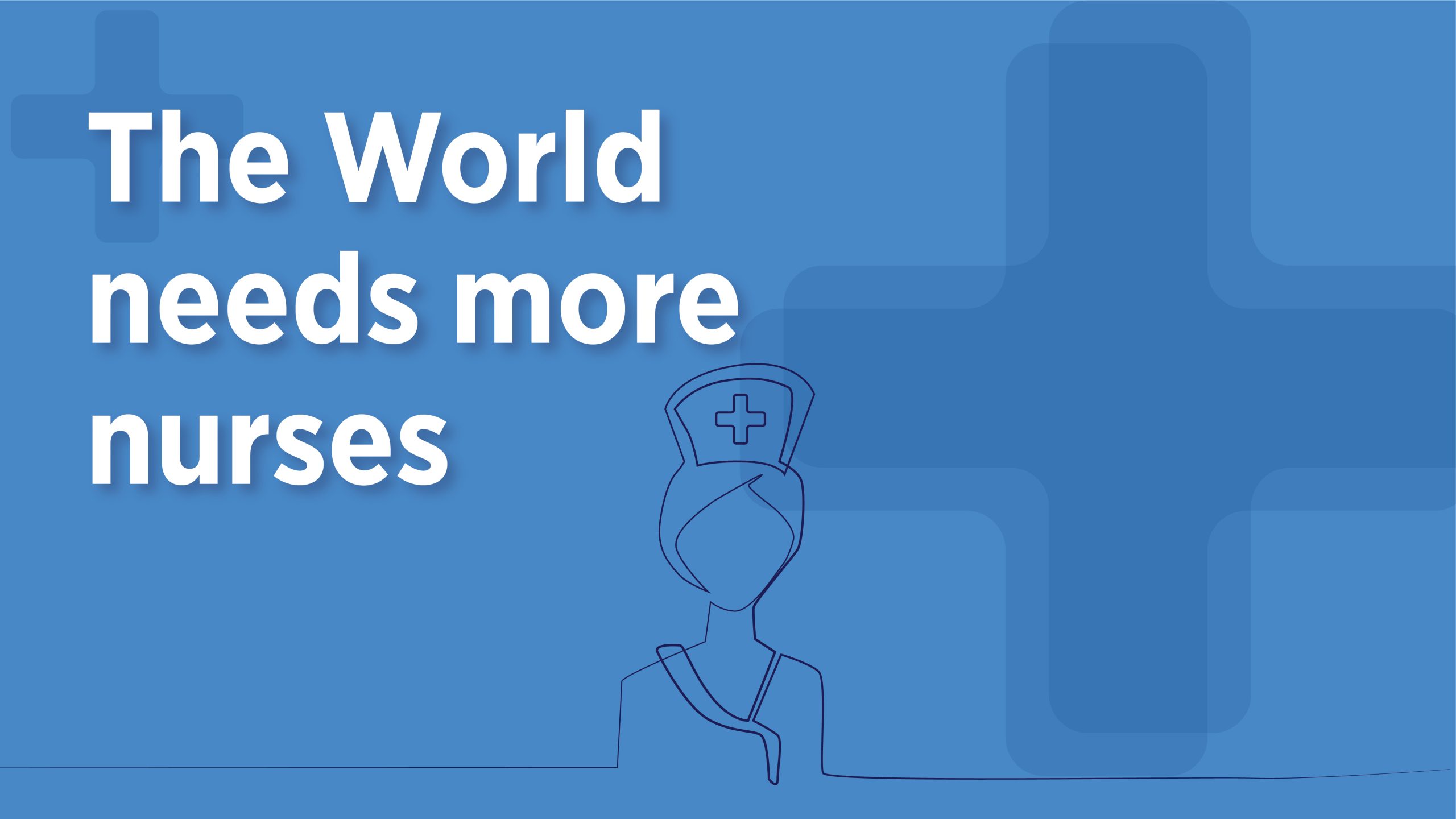Nurses are considered the backbone of the U.S. healthcare system, but there is an unprecedented shortage of these superheroes today. With the advancement of the healthcare system, registered nurses are one of the fastest-growing occupations. The American Nurses Association (AMA) estimated that there will be more employment opportunities for registered nurses than any other profession. With this growth in occupations, a rise in nurse shortages can also be anticipated. According to the U.S. Bureau of Labor Statistics, more than 275,000 nursing job vacancies will be available from 2020-2030.
Approximately 200,00 new registered nurses are required every year but currently, 1 in 5 full-time registered nursing jobs are unfilled.
With the continuous RN workforce shortage, healthcare settings need to find new advancements to overcome the challenges. With an unwavering focus on the quality of patient care, solutions such as automation have to take over the repetitive administrative tasks of nurses. Eventually, automation enhances the quality of clinical services provided to patients as nurses don’t have to perform intensive administrative work and can focus on improving patient care with various other aspects. About 91% of nurses mentioned that if they could spend less time dealing with medical devices then they could spend more time with their patients. Evidence shows that the emergence of automation can boost clinical outcomes.
Additionally, it is important to focus on some of the factors responsible for the nurse shortage –
High Nurse Turnover

Image Courtesy : Cedric Fauntleroy, Pexels
Stress and burnout among nurses are serious concerns and the problem worsened to a greater extent with the onset of COVID-19. Nurse shortage and increasing demand for healthcare needs make nurses feel overworked and exhausted. The Washington Post reported about 30% of healthcare workers have left or are considering leaving the nursing profession. In a study, 87% of nurses said they have felt burnt out in the past year and 83% of nurses feel their mental state has suffered. Nurses experience extensive poor mental and emotional health. About one-third of nurses suffer from depression and almost 80% of nurses in emergency care suffer from post-traumatic stress disorder. Factors such as these have resulted in higher nurse attrition rates.
Inadequately staffed
About 80% of nurses feel their units face inadequate staffing ratios. In pre-COVID times ICU nurses were experiencing a 1:1 or 2:1 patient-to-nurse ratio which has currently increased to 3:1 or 4:1 therefore, has enhanced workload leading to nursing burnout and possibly clinical errors. Inadequate staffing adds risks to patient health. A higher probability of medical error and lapses in continuous treatment may lead to increased morbidity and mortality rates.
Aging Work Force

Image Courtesy : Australian Nursing and Midwifery Journal
About 70,000 nurses retire annually. Currently, it is estimated that one million registered nurses are over 50 years, implicating that about one-third of the nurses would reach retirement age and leave the workforce in the coming 10-15 years. The pandemic worsened the situation with nurses leaving the profession and opting for early retirement. A study revealed primary factor behind the higher rate of aging registered nurses is a decline in younger women choosing nursing careers. If this trend is not reversed, the RN workforce will continue to age and reach retirement age, hence leaving their jobs and creating an even more severe nurse shortage with significantly lower intake rates.
Pre-licensure nursing education capacity

Image Courtesy : Karolina Grabowska, Pexels
The growth of nursing enrollment is unable to meet the demand of the healthcare industry. Nursing shortage and nursing education are interlinked. According to AACN, nursing schools turned away approximately 80,000 applicants due to scarcity of availability of faculty, academic space, clinical infrastructure, and budget. Competition for faculty compensation from clinical to other professions in the private sector also drives qualified educators away from traditional nursing programs. Many factors such as low incentives and poor working conditions etc. contribute to the nurse educators’ shortage.
The surges of Covid 19 have worsened the nurse shortage due to nurse burnout and moral distress. Even before the global health emergency, healthcare had been facing an alarming RN workforce scarcity which threatens the effective care delivery of patients and possibly leaves hospitals struggling financially. With increased nurse attrition rates and a high nurse-to-patient ratio, the RN workforce experiences an overload of tasks carried out per patient per shift. In such situations, curbing time spent on laborious tasks such as incontinence care can significantly alleviate physical fatigue and also reduce burnout, compassion fatigue, and mental and emotional stress and partially make up for the acute nursing shortage.
The nurse exhaustion or shortage is crippling patient care. Automation can help in harmonizing nurse workflow, simplifying documentation tasks, and easing communication so that nurses get time back to spend with their patients and focus on care delivery. One such innovative advancement in the healthcare industry is robotic process automation which can handle administrative tasks and allow caregivers to focus better on patient management, automated triage screening tools help patients self-triage, and many more. These automated methods are part of an ongoing series of innovative technological solutions to combat nurse burnout.

Qoramatic Automated Stool Management
Managing incontinent patients requires 174 minutes of nursing time which could otherwise be utilized in other crucial patient care. While several new innovations and behavioral changes were adopted and introduced during the pandemic, Consure Medical reinvented the stool management kit with Qoramatic- an automated closed stool management kit that can help nurses save 7-8 minutes per hour and focus on other aspects of patient care. Qoramatic is a one-touch operation device that uses negative pressure suction to divert fecal effluents from the rectum. The novel receptacle exerts 0 mmHg radial pressure on the anatomy minimizing necrosis, mucosal impairment, and sphincter damage. To learn more and request a free demo, contact a local sales rep at [email protected]


2 replies on “The World Needs More Nurses”
Itís nearly impossible to find educated people in this particular subject, however, you seem like you know what youíre talking about! Thanks
awesome